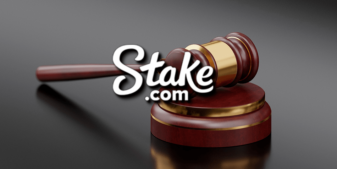Stake.com founders, Ed Craven and Bijan Tehrani have dismissed the legal action telling local press that it was ‘provably false’.
Freeman, a childhood friend of Tehrani, claims that they both set up an online casino business called Primedice in 2013 while they were in university. Freeman claims he held a 20% stake in Primedice while Tehrani and Craven both held 40% each. The legal action claims that within nine months of the creation of Primedice, his shares had been reduced to 14%. This was done to reward other senior members of the development team. It’s Freeman’s opinion that this share transfer was a breach of the original agreement that Primedice would only provide equity to other investors beyond they original three founders.
Freeman then claims that although he had suggested the idea of creating a cryptocurrency casino, the Tehrani and Craven dissuaded him from making an initial investment in Stake.com and was told that he could invest at a later date. He also alleges that he was told that the new business would not accept cryptocurrencies.
The court documents state:
“Freeman, who was committed to and comfortable with online gambling concepts, believed a fiat money casino was the wrong direction to go (online gaming facilitated by fiat is a widespread, big business).
Stake.com Founders Hit With $400 Million Lawsuit
The documents also allege alleges that despite being given assurances, Freeman’s system privileges to Primedice were revoked.
“Later, when Stake.com launched as a virtual casino which included a competing online dice game and many other features Freeman had proposed and helped design, Tehrani and Craven affirmatively tried to assuage Freeman’s dismay at having been misled by affirming that he still retained his stake in Primedice. Eventually, Freeman’s access to the Primedice account was blocked and never returned.”
In a statement released to the Australian press, the company said:
“The complaint filed by Chris Freeman contains allegations that are internally inconsistent, intentionally misleading, and provably false. It amounts to desperate attempt to spread false information.”
Since launching in 2017, Stake.com has grown to become a global brand. It has sponsored English football teams Everton and Watford and also counts Drake as its main brand ambassador. It’s estimated that the company is now worth around $1 billion (€1 billion).


